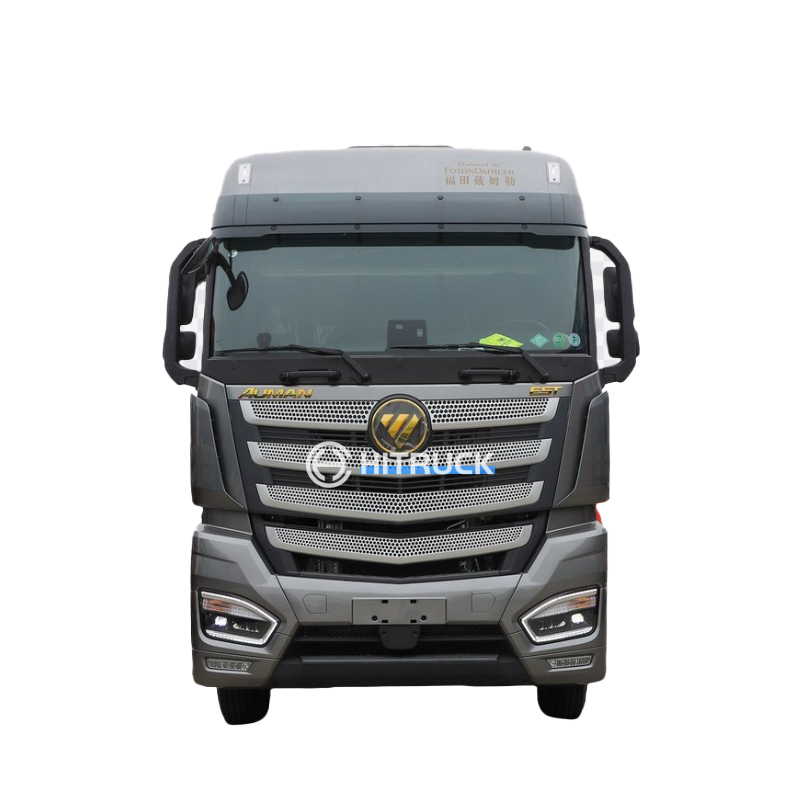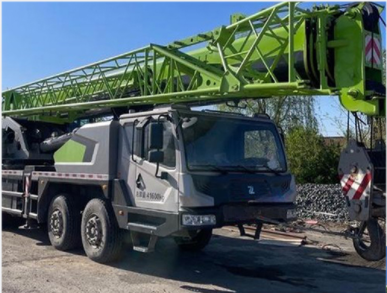This comprehensive guide explores the world of mixer pump trucks, providing insights into their various types, applications, and key considerations for selection. We'll delve into the specifics of these versatile machines, helping you make an informed decision based on your unique project requirements. Learn about the different features, functionalities, and potential challenges associated with mixer pump trucks to ensure you choose the optimal equipment for your needs. Discover how to maximize efficiency and minimize potential issues throughout your project lifecycle.
The most common type, these trucks combine a concrete mixer with a pump, allowing for efficient mixing and placement of concrete. Capacity varies greatly, from smaller models suitable for residential projects to larger units capable of handling large-scale construction sites. Consider factors like the reach required and the volume of concrete needed when selecting a concrete mixer pump truck. Features such as boom length, pumping capacity, and the type of mixer (drum or stationary) are critical considerations.
Designed for smaller jobsites and projects requiring mortar, these trucks are typically more compact and offer a lower pumping capacity compared to concrete mixer pumps. Their maneuverability is a significant advantage in tight spaces. Factors to consider include the type of mortar being pumped (consistency and aggregates), the required output, and the size and accessibility of the worksite. When choosing a mortar mixer pump truck, focus on ease of operation and maintenance in addition to pump performance.
For specialized applications, such as pumping grout or other materials, specialized mixer pump trucks are available. These trucks often incorporate features tailored to the specific material properties and application requirements. Always consult with a specialist to determine the best option for your unique material handling needs. Consider factors like the material’s viscosity, abrasive properties, and the required pumping pressure.
Selecting the right mixer pump truck requires careful consideration of several key specifications:
| Feature | Description |
|---|---|
| Pumping Capacity | Cubic meters per hour (m3/h) or cubic yards per hour (yd3/h) |
| Boom Length and Reach | Horizontal and vertical reach capabilities. |
| Mixer Capacity | Volume of material the mixer can hold. |
| Engine Power and Type | Horsepower and fuel type (diesel, gasoline, etc.). |
| Chassis and Drivetrain | Type of chassis and drivetrain (4x2, 6x4, etc.). |
Regular maintenance is crucial for optimal performance and longevity. This includes routine inspections, lubrication, and cleaning. Safety protocols should always be followed, including proper training for operators and adherence to all relevant safety regulations. For more information on the maintenance and safety procedures specific to your chosen mixer pump truck, always consult the manufacturer's manual.
The ideal mixer pump truck depends heavily on your project's specific requirements. Consider factors such as the volume of material needed, the job site's accessibility, and the type of material being pumped. Consulting with industry professionals and reviewing detailed specifications from reputable manufacturers like those you can find at Suizhou Haicang Automobile sales Co., LTD is recommended to ensure you make an informed decision. Remember to carefully evaluate the cost of ownership, including maintenance, fuel consumption, and potential repairs, before making a purchase.












